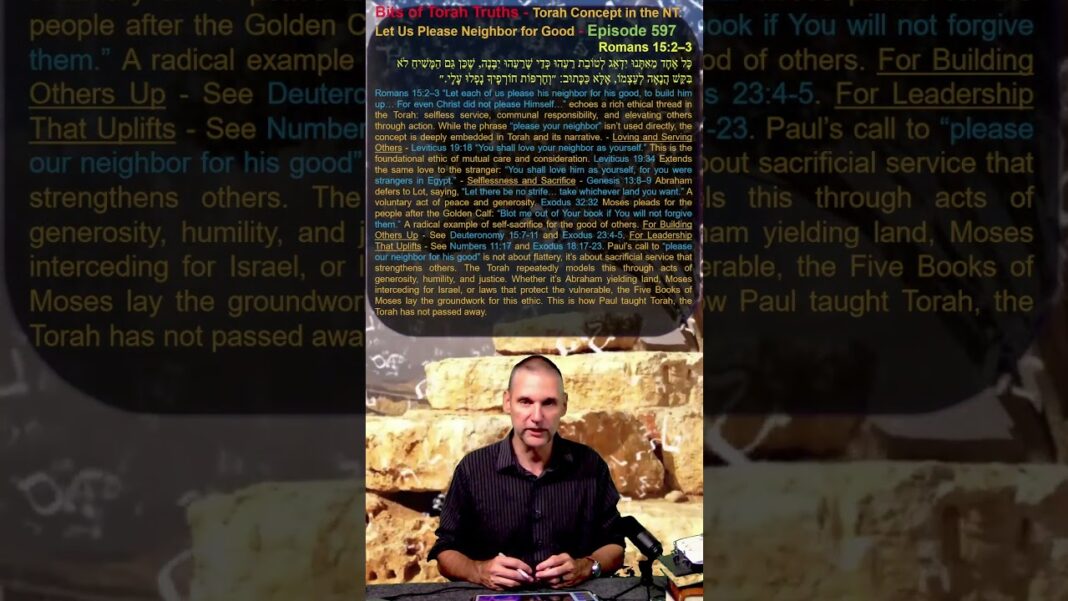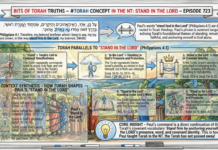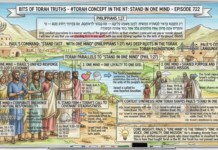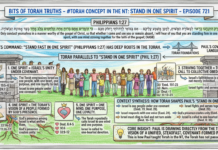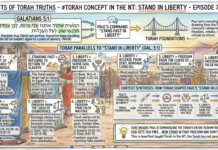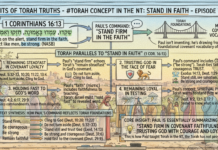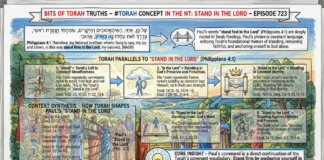Bits of Torah Truths – Torah Concept in the NT: Let Us Please Neighbor for Good – Episode 597
Romans 15:2–3
כָּל אֶחָד מֵאִתָּנוּ יִדְאַג לְטוֹבַת רֵעֵהוּ כְּדֵי שֶׁרֵעֵהוּ יִבָּנֶה, שֶׁכֵּן גַּם הַמָּשִׁיחַ לֹא בִּקֵּשׁ הֲנָאָה לְעַצְמוֹ, אֶלָּא כַּכָּתוּב׃ ״וְחֶרְפּוֹת חוֹרְפֶיךָ נָפְלוּ עָלָי.״
#torah #torahwisdom #torahtruth #torahforlife #torah4you #torahtruth
Romans 15:2–3
15:2 Each of us is to please his neighbor for his good, to his edification. 15:3 For even Christ did not please Himself; but as it is written, “THE REPROACHES OF THOSE WHO REPROACHED YOU FELL ON ME.” (NASB)
https://www.matsati.com/index.php/category/bits-of-torah-truths/
Romans 15:2–3 “Let each of us please his neighbor for his good, to build him up… For even Christ did not please Himself…” echoes a rich ethical thread in the Torah: selfless service, communal responsibility, and elevating others through action. While the phrase “please your neighbor” isn’t used directly, the concept is deeply embedded in Torah and its narrative. – Loving and Serving Others – Leviticus 19:18 “You shall love your neighbor as yourself.” This is the foundational ethic of mutual care and consideration. Leviticus 19:34 Extends the same love to the stranger: “You shall love him as yourself, for you were strangers in Egypt.” – Selflessness and Sacrifice – Genesis 13:8–9 Abraham defers to Lot, saying, “Let there be no strife… take whichever land you want.” A voluntary act of peace and generosity. Exodus 32:32 Moses pleads for the people after the Golden Calf: “Blot me out of Your book if You will not forgive them.” A radical example of self-sacrifice for the good of others. For Building Others Up – See Deuteronomy 15:7-11 and Exodus 23:4-5. For Leadership That Uplifts – See Numbers 11:17 and Exodus 18:17-23. Paul’s call to “please our neighbor for his good” is not about flattery, it’s about sacrificial service that strengthens others. The Torah repeatedly models this through acts of generosity, humility, and justice. Whether it’s Abraham yielding land, Moses interceding for Israel, or laws that protect the vulnerable, the Five Books of Moses lay the groundwork for this ethic. This is how Paul taught Torah; the Torah has not passed away.
